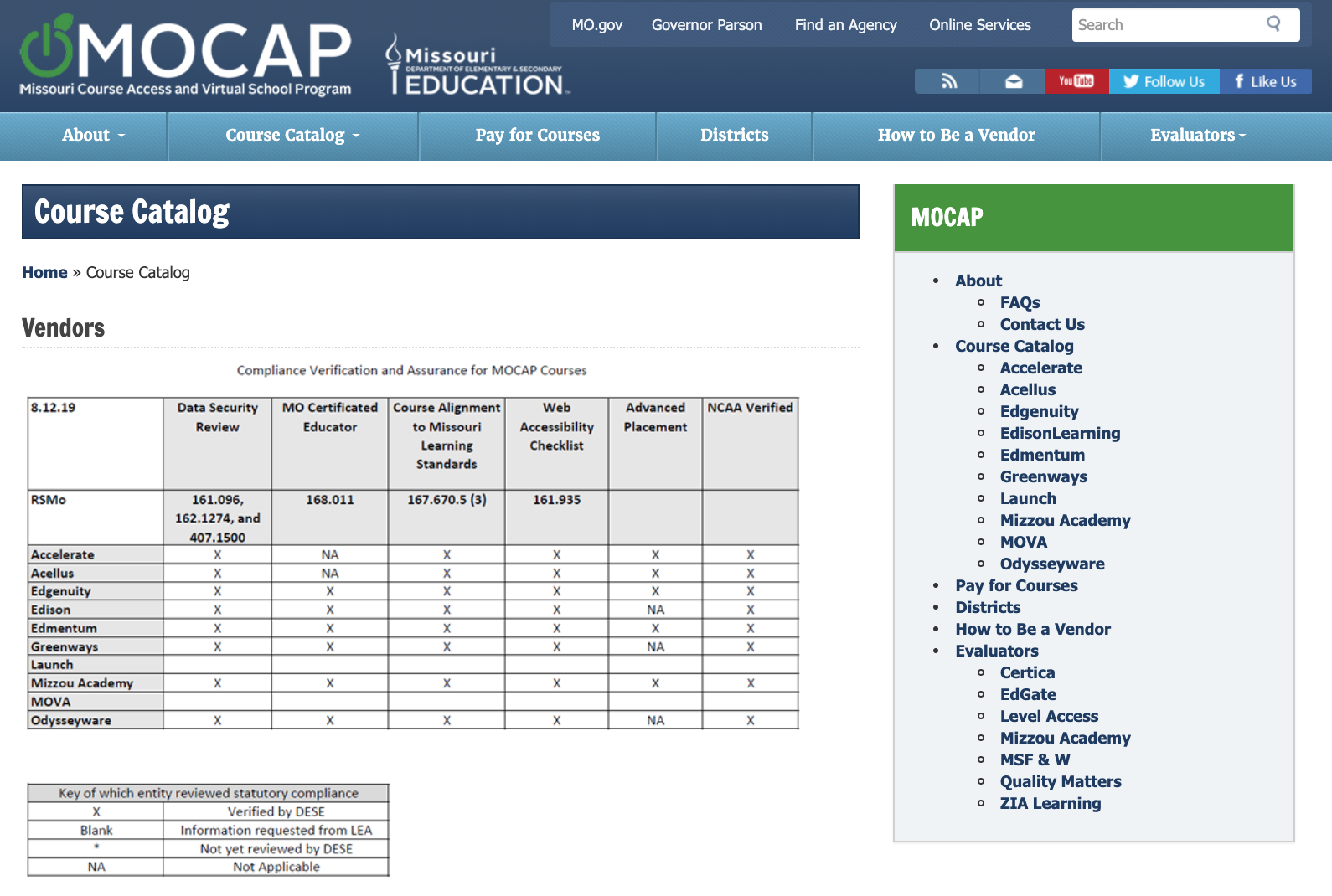DESE continues effort to block virtual education access
Why does DESE want to block access to virtual education?
No other logical conclusion can be drawn from the way DESE responded to a recent court ruling.
On Aug. 5, Circuit Court Judge Gael Wood ruled DESE must give students access to the Missouri Virtual Academy (MOVA).
MOVA is a virtual education program provided by the Grandview R-II school district.
Judge Wood ruled virtual education programs offered by school districts are automatically approved providers for the state’s new virtual education program (called MOCAP).
This ruling should have been a major victory for Missouri students.

Misreading the law to block access
But just one day after the ruling a law firm representing over 200 school districts tried to negate the victory.
An EdCounsel blog post argued school districts could still block access to MOVA.
EdCounsel suggested MOVA may not be in a students’ best interests simply because Grandview R-II, not DESE, was ensuring the MOVA program met state regulations.
Of course, that is exactly how the law says programs provided by districts should meet state regulations.
But that did not stop DESE from jumping on the bandwagon and continuing to block access to MOVA.
Shortly after the EdCounsel blog post, DESE added disclaimers to its website that could encourage districts to not use MOVA.
There is a new chart highlighting which providers DESE has evaluated in a very prominent position on the MOCAP website.

MOCAP also singles out two approved providers, MOVA and Launch, with the following statement: “Please note, the DESE MOCAP office has not reviewed this provider’s course alignment, educator certification, data security, or web accessibility.”
These actions violate the letter and spirit of both the law and Judge Wood’s ruling.
Students being hurt by administrative roadblocks
Districts are still trying to block access to programs like MOVA. The struggles of an Edwards, MO, family are a good example.
Their child has a medical condition that makes it difficult to succeed in a traditional classroom.
The family, after consulting with multiple physicians, determined that a full-time virtual education program was in their child’s best interests.
Instead of supporting that decision, the Warsaw R-IX School District chose to deny enrollment in MOVA.
The district demanded MOVA prove to the district that it met state requirements, something already proven by its status as an approved MOCAP provider).
The family was given only two options: limited virtual courses or regular classes. Refusing one of these options would “involve lawyers.” When the family decided to keep their child at home at the start of school while they worked on an acceptable resolution, the district reported the child’s absences as unexcused resulting in daily truancy warnings.
Attorney Josh Schindler, who won the previous virtual education case, points out that the district’s MOCAP enrollment process is “statutorily invalid.”
As Schindler writes in a letter to the district:
“Try as the district/DESE might to eventually find/invent one, there are no loopholes built into MOCAP. Approval, not denial, is the MOCAP default, as it is not the student’s/parent’s burden to prove their best interest, or disprove your desired negative. That is so, because parents are better suited than the district in which they happen to reside, to determine their child’s best interest.”
« Previous Post: Missouri test scores are the same or lower than last year
» Next Post: Education Next Poll: What the numbers tell us